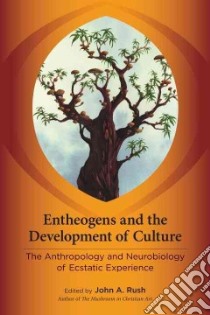Entheogens and the Development of Culture - 9781583946008
Un libro in lingua di Rush John A. (EDT) edito da North Atlantic Books, 2013
- € 25.00
- Il prezzo è variabile in funzione del cambio della valuta d’origine
Mind-altering substances, according to many of the essays in this book, have played a major part not only in cultural development but also in human brain development. Researchers suggest that we purposely enhanced receptor sites in the brain, especially dopamine and serotonin, through the use of plants and fungi over a long period of time. The trade-off for lowered functioning and potential drug abuse was more creative thinking--or a leap in consciousness. Experiments in entheogen use led to the development of primitive medicine, in which certain mind-altering plants and fungi were imbibed to still fatigue, pain, or depression, while others were taken to promote hunger and libido. Our ancestors selected for our neural hardware, and our propensity for seeking altered forms of consciousness as a survival strategy may be intimately bound to our decision-making processes going back to the dawn of time.
Entheogens and the Development of Culture includes 15 essays by a wide range of contributors. From the founding president of the American Anthropological Association's Anthropology of Religion section Michael Winkelman, PhD, to Carl A.P. Ruck, PhD, Professor of Classics at Boston University, an authority on the ecstatic rituals of the god Dionysus, to the world-renowned botanist Dr. Gaston Guzma, member of the Colombian National Academy of Sciences and expert on hallucinogenic mushrooms, these writers demonstrate that altering consciousness continues to be an important part of human experience today. Anthropologists, cultural historians, and anyone interested in the effects of mind-altering substances on the human mind and soul will find this book deeply informative and inspiring.
Informazioni bibliografiche
- Titolo del Libro in lingua: Entheogens and the Development of Culture
- Sottotitolo: The Anthropology and Neurobiology of Ecstatic Experience
- Lingua: English
- Autore: Rush John A. (EDT)
- Editore: North Atlantic Books
- Collana: North Atlantic Books (Paperback)
- Data di Pubblicazione: 30 Luglio '13
- Genere: SOCIAL SCIENCE
- Pagine: 651
- EAN-13: 9781583946008


